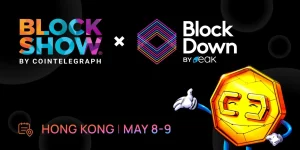The operations director of ENS says that DAO-based governance is “always the plan”
On Monday, the distributed domain protocol Ethereum Name Service (ENS) launched its own governance token to distribute voting rights to its new decentralized autonomous organization (DAO) for active users of the ecosystem.
Cointelegraph spoke to ENS Chief Operations Officer Brantly Millegan to learn more about the nonprofit’s decision to move to the DAO model and his thoughts on the strength of the ENS community:
“ENS is an open public protocol. The core components of the ENS are decentralized and run independently (e.g. no one can take away someone else’s .ETH name), but there are some things that require human discretion. “
He noted that the ENS has historically been controlled by a four-out-of-seven signature system, with members of the relevant projects serving as key parties. They facilitated upgrades, managed the registration mechanism for the .eth prices for the domains, and managed the ENS Treasury funds.
Replacing this multisig and transferring the ENS management to the community by a DAO is “always the plan”, according to Millegan:
“Weu20 is doing it right now because we believe that both the ENS and DAO areas are mature enough.”
When users requested ENS tokens during the recent airdrop of the protocol, the service urged participants to immediately vote in favor of ratifying the proposed ENS constitution and authorize the DAO to take over the token role of multisig.
Community members must also authorize their future DAO voting rights before claiming their tokens. The authorization process allows a smaller number of active users to make decisions for the ENS community instead of requiring constant interactions from every token holder in the area every time a vote is requested. While a large number of ENS contributors volunteer as potential delegates, users don’t just have to choose from the platform’s recommendation list. Instead, they can delegate their votes to any address, including their own.
Related: Tagging Cuban Issues with Notes on Attack ENS Domains
Regarding the distribution of ENS tokens and how the fair governance model works, Brantly told Cointelegraph:
“ENS DAO will [be] one to one, but we have chosen distribution rules that favor egalitarianism and users over speculators. ”
He explained that the nonprofit awards tokens based on the number of days a person has even owned an ENS name, rather than the number of domains a person has registered.
Users who have paid up to eight years of renewal fees should receive an additional cache of tokens during the airdrop. Participants in the Protocol’s Discord and Twitter are also entitled to additional requirements.
The DAO is ultimately responsible for spending any revenue that the Protocol’s nonprofit organization receives. According to Article 3 of the ENS Constitution, funds are made available for the development of ENS, the broader ecosystem and public goods in Web 3.0. Millegan stated that there was “no profit sharing incentive” and that the token-based DAO system “allows a high degree of flexibility”.
Within 24 hours of its launch, the new ENS governance token reached a fully diluted valuation of $ 3.16 billion. A day later, at the time of publication, that number has hit $ 8 billion and is still rising.
Follow the Youtube Channel | Subscribe to telegram channel | Follow Facebook page




















